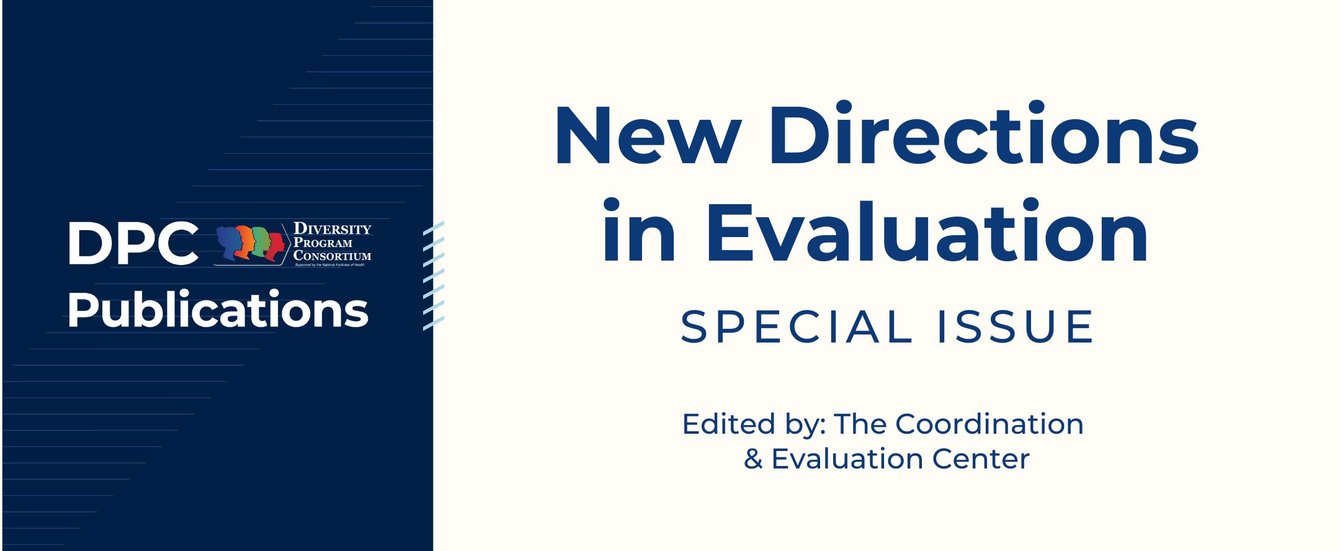
Media Release
August 24, 2022
CEC Media Contacts: cjjoseph@mednet.ucla.edu ehoh@mednet.ucla.edu
NIH Media Contact: christa.reynolds@nih.gov
DPC Coordination and Evaluation Center Publishes Special Issue of
New Directions in Evaluation Journal
Los Angeles, CA, August 2022—August marked a momentous month for the National Institutes of Health’s Diversity Program Consortium (NIH DPC) with the release of a special issue in the journal, New Directions for Evaluation.
Titled “Evaluating a National Biomedical Diversity Initiative,” the issue describes the ongoing evaluation work led by the DPC’s Coordination and Evaluation Center (CEC) at the University of California, Los Angeles.
The DPC was funded in 2014 by the NIH’s Common Fund, as part of a 10-year long, wide-ranging effort to advance diversity and equity in the biomedical research workforce. The three core DPC initiatives—the CEC, the BUilding Infrastructure Leading to Diversity (BUILD) Program and the National Research Mentoring Network (NRMN)—develop, implement, assess and disseminate innovative approaches to research training and mentoring. Evaluation is an integral aspect of all DPC initiatives, and the CEC focuses primarily on the BUILD programs.
“The initiatives and programs established through the Consortium focus on changing who participates in and remains committed to conducting biomedical research,” said Lourdes Guerrero, EdD, one of the issue’s editors and a CEC researcher. “This issue shares insights, lessons learned and explores how the evaluation work has evolved.”
Through case studies and surveys, the CEC collects longitudinal data that tracks respondents’ progress during their biomedical research journeys.
“Our work was grounded in evaluation theory, specifically, utilization-focused evaluation and theory-driven evaluation, with a stance or perspective informed by equitable evaluation practices – that is, we were intentional about being both scientific and in service of equity,” Guerrero said.
In articles throughout this issue, CEC researchers share details about designing and implementing this complex evaluation of the BUILD programs (Chapter 1), analytical approaches and methods of measuring impact (Chapters 4 and 5), as well as ways to increase survey response rates (Chapter 3), and implement case studies (Chapter 2). Chapter 7 offers process insights from local BUILD evaluators, and Chapter 6 discusses the theories informing their evaluations.
Chapter 8 offers critical evaluative insights gained from this study, while Chapter 9 includes the funders’ perspectives on lessons learned so far.
The authors of Chapter 9 wrote that this evaluation is a “once-in-a-generation opportunity” to examine the science of workforce diversity, mentoring and research capacity building.
“The program is already having significant impacts on NIH’s research training and capacity-building evaluation activities,” they wrote. “As we learn more about the efficacy of various approaches through the ongoing consortium-wide and site-level evaluations, the program will extend its impact on cultivating and sustaining a research enterprise that better reflects and serves the needs of the entire American public.”
As teams developing research training programs continue asking questions about their programs’ effectiveness and impact, the intention is that the findings and ideas shared in this special issue will help inform future evaluation efforts.
Read the full articles in this issue for free at the Wiley Online Library.
Visit Our Story for more information on the development of the DPC and to learn more about grant awardees.
The Coordination and Evaluation Center at UCLA is supported under award number U54GM119024.

Grow Together.